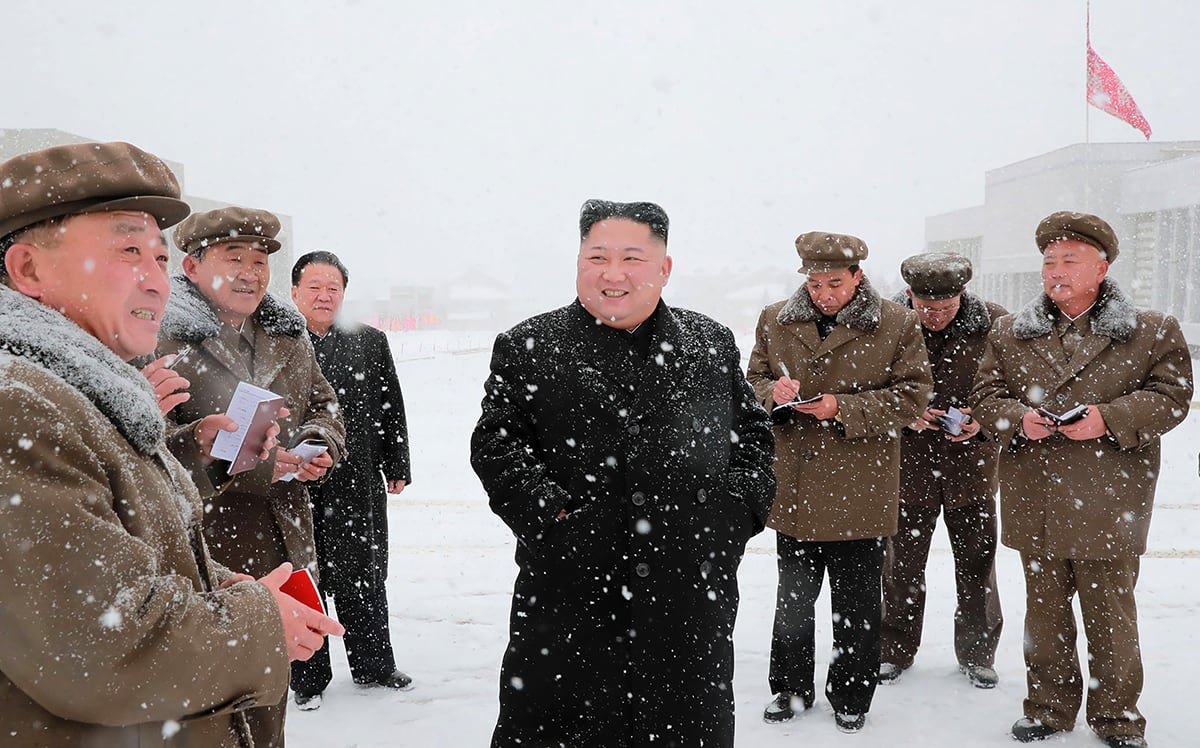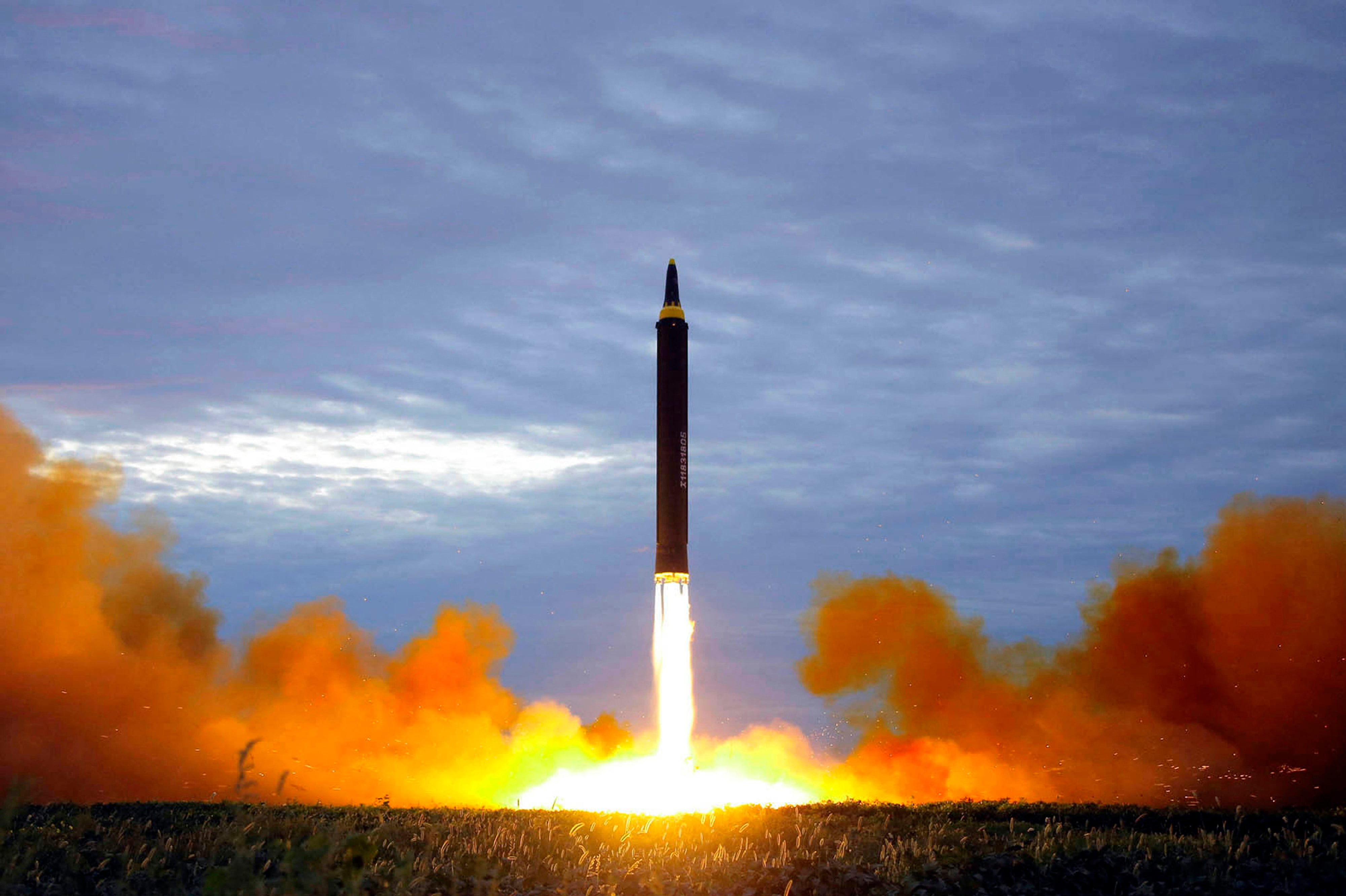When it comes to North Korea, all eyes are on nuclear weapons, but the lack of attention toward chemical and biological capabilities weakens defense against potential attacks, according to experts in the field.
After the breakdown of talks between the United States and Pyongyang last week, the future of not only nuclear weapons but biological and chemical weapons is uncertain.
“The real terrorists threats, primarily when you talk about weapons of mass destruction — nuclear, chemical and biological — are chemical weapons, biological diseases and radioactive materials,” said Paul Walker, vice chairman of the board of directors for the Arms Control Association.
RELATED

Walker, who has worked in the international security field for more than 40 years, said chemical and biological agents are the biggest threats facing society today.
In the new Congress, lawmakers have paid particular attention to nuclear weapons. The House Armed Services Committee is holding a hearing on nuclear deterrence policies today and their counterparts on the Senate Armed Services Committee held a similar hearing on nukes last week. Neither panel plans to hold a hearing on chemical or biological weapons in the near future, according to committee staff members.
Jenifer Mackby, a senior fellow at the Federation for American Scientists, said that while the image of the mushroom cloud at Hiroshima and Nagasaki makes people fear the use of nuclear weapons, there is little public knowledge about biological weapons.
“With biological weapons, people don’t pay that much attention to it and, in fact, they probably don’t even have a clue what it might be or how it could be put into action,” Mackby said.
The U.S. intelligence community has made mention, albeit briefly, of North Korea’s chemical and biological programs. During the Senate Select Committee on Intelligence hearing in January, intelligence community leaders reiterated how the advancements of weapons of mass destruction threaten U.S. and global safety.
John Parachini, a senior policy analyst at the Rand Corporation, recently wrote an article about the limited intelligence the United States has on North Korea’s biological weapons programs. He said the United States does not have concrete proof of North Korea’s biological capabilities.
“Based on the evidence we have in the open source environment, I think it’s hard to tell they may have capabilities,” Parachini said. “But the evidence we have as revealed in the Worldwide Threats statements from the U.S. intelligence community over the years have varied and have used cautionary language like they may have capabilities.”
Unlike biological weapons, the United States does have more intelligence and understandings of North Korea’s chemical weapons program. The U.S. intelligence community’s 2019 Worldwide Threat Assessment noted that North Korea “used chemical weapons on the battlefield or in assassination operations during the past two years.”
Gary Ackerman, an associate professor with the College of Emergency Preparedness, Homeland Security and Cybersecurity at the University of Albany, said North Korea has a sizable chemical weapons arsenal that poses a threat to neighboring countries like South Korea.
“There’s still a fair amount of evidence that they have one of the largest chemical weapons arsenals that’s around at the moment so North Korea is a huge threat in terms of chemical weapons,” Ackerman said. “I’d say that largest state-level threat in terms of chemical weapons in the world.”
RELATED

There are multilateral treaties that hold states accountable for these weapons. The Chemical Weapons Convention and the Biological Weapons Convention have established international norms against the use, production, distribution, and stockpiling of chemical and biological weapons. The Biological Weapons Convention has 182 members while the Chemical Weapons Convention has 193.
Walker said North Korea signed the Biological Weapons Convention through ascension, but it has not signed the Chemical Weapons Convention. In addition to North Korea, Israel, Egypt and South Sudan have not ratified the Chemical Weapons Convention.
“All of your major players have signed and ratified,” said Walker, who was a staff member for House Armed Services Chairman Ron Dellums in the 1990s. “The one important country missing is North Korea today.”
Ackerman said the absence of North Korea’s membership in the Chemical Weapons Convention may be a strategy to keep the United States and other countries guessing when it comes to the actual size of their chemical weapons program.
While the probability of a biological or chemical weapons attack is low, Parachini said continuing to initiate talks with North Korea helps the United States get a better sense of Pyongyang’s biological and chemical capabilities.
“In order to keep that probability low and to understand that potential danger,” Parachini said. “What’s ideal is to get more transparency and so that’s where the current dialogue with North Korea is important even if its focused on their nuclear and missile programs.”





